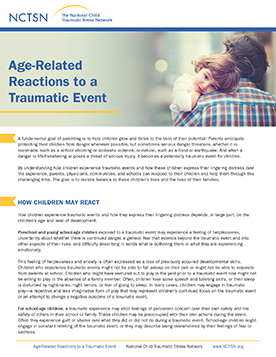
Age-Related Reactions to a Traumatic Event
Describes how young children, school-age children, and adolescents react to traumatic events and offers suggestions on how parents and caregivers can help and support them.
April was first declared as Sexual Assault Awareness Month in 2001. Since then, April has been a time to acknowledge the widespread prevalence of sexual assault nationwide and those who have survived sexual violence. Sexual violence includes a range of actions and behaviors including rape, child sexual abuse, sexual exploitation, and sexual harassment. Sexual violence happens to people of all ages, races, genders, sexual orientations, religions, abilities, professions, incomes, and ethnicities. In 2015, it was reported from the U.S. Department of Health and Human Services' Children's Bureau that 57,286 cases of child sexual abuse were reported in the United States.
In recognition of this important topic, the NCTSN has compiled a list of resources for children, teens, parents and caregivers, educators, child welfare and juvenile justice professionals, and mental health providers.
A list of external resources related to sexual assault awareness is available here.

Describes how young children, school-age children, and adolescents react to traumatic events and offers suggestions on how parents and caregivers can help and support them.
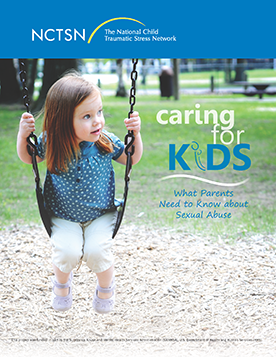
Provides parents and caregivers with tools to help them support children who have been victims of sexual abuse, information on the importance of talking to children and youth about body safety, and guidance on how to respond when children disclose sexual abuse.
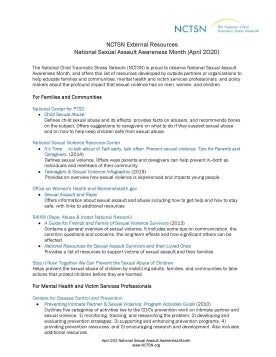
Provides external resources related to sexual assault awareness.
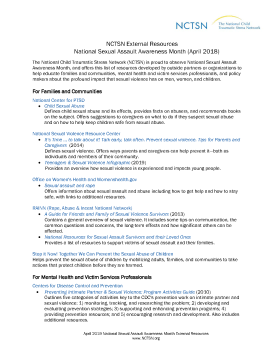
Provides external resources related to sexual assault and National Sexual Assault Awareness Month.
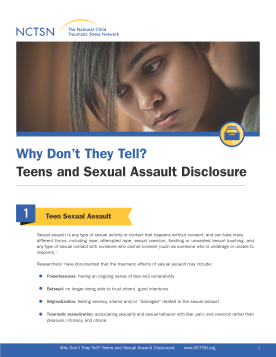
Offers information about teen sexual assault and disclosure. This fact sheet outlines why teens don't disclose sexual assault, the benefits of disclosure, and how to support teens after disclosure of a sexual assault.
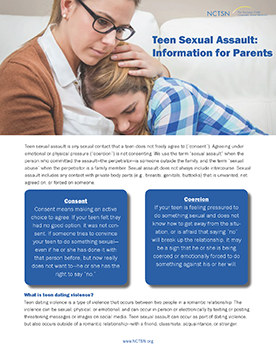
Defines key terms, including consent and coercion, and offers guidance to parents related to dating violence and sexual assault.
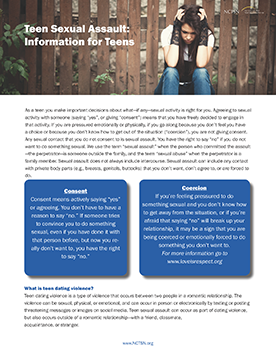
Defines key terms, including consent and coercion, and offers guidance to teens related to dating violence and sexual assault.
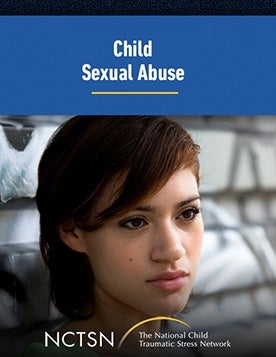
Discusses sexual assault that occurs within the context of ongoing relationships and those that occur in a one-time interaction (e.g., at a party, among casual acquaintances, friends who are not in an ongoing intimate/romantic relationship).
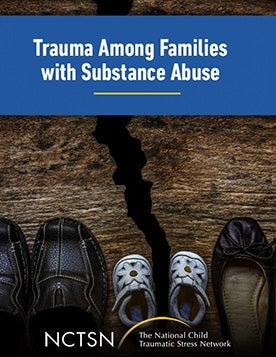
Describes the connection between caregiver trauma and substance abuse.
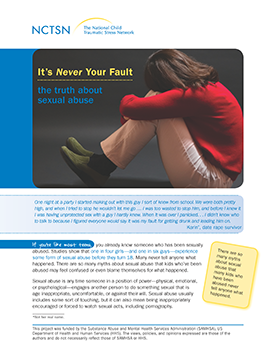
Provides information to teens about sexual abuse. This fact sheet describes what sexual abuse is, how common it is, myths and facts about sexual abuse, and where to go for help.
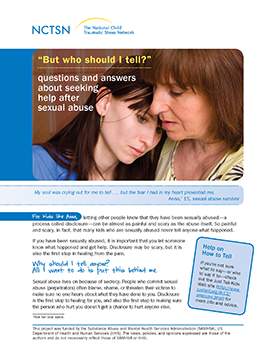
Discusses the options teens have after sexual abuse. This fact sheet provides information on whether or not to tell, who to go to for help, and what resources are available for support. It provides information for sexual abuse survivors about the process of disclosure.
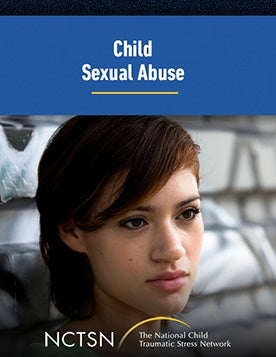
Explains how to differentiate between myths and facts regarding child sexual abuse and describes how to effectively respond to adolescent victims of acquaintance rape.